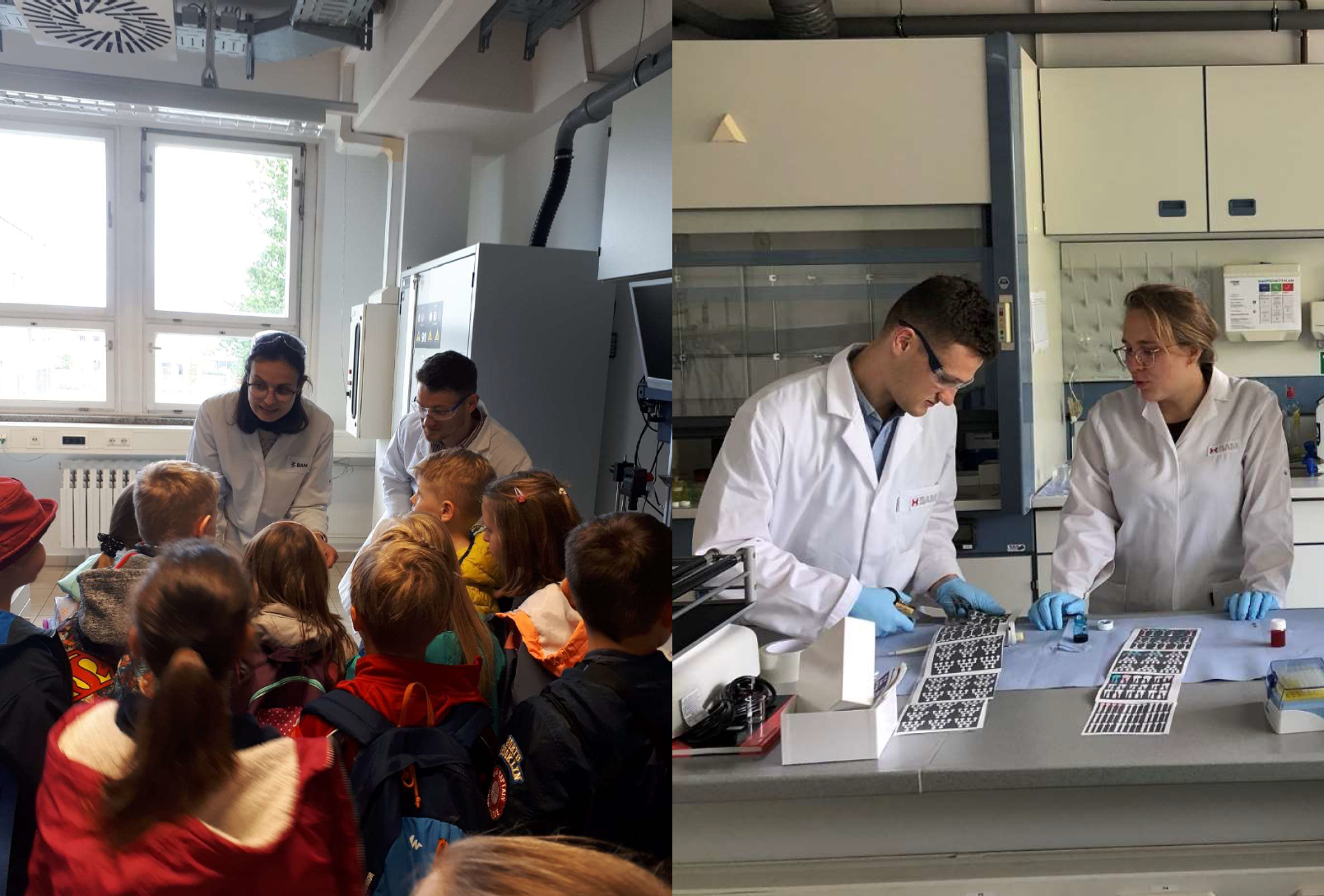Outreach awards were announced in the last meeting (17th of June 2021).
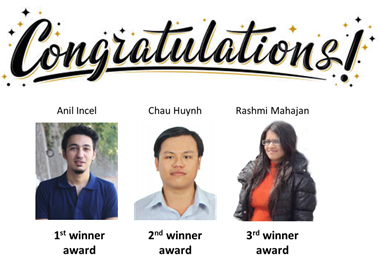
Outreach awards were announced in the last meeting (17th of June 2021).

Ignacio Arribas Díez, ESR7 defended his Ph.D. thesis, which is entitled: “Advances in phosphopeptide enrichment techniques for phosphoproteomics” on 4th of June 2021. Congratulations!
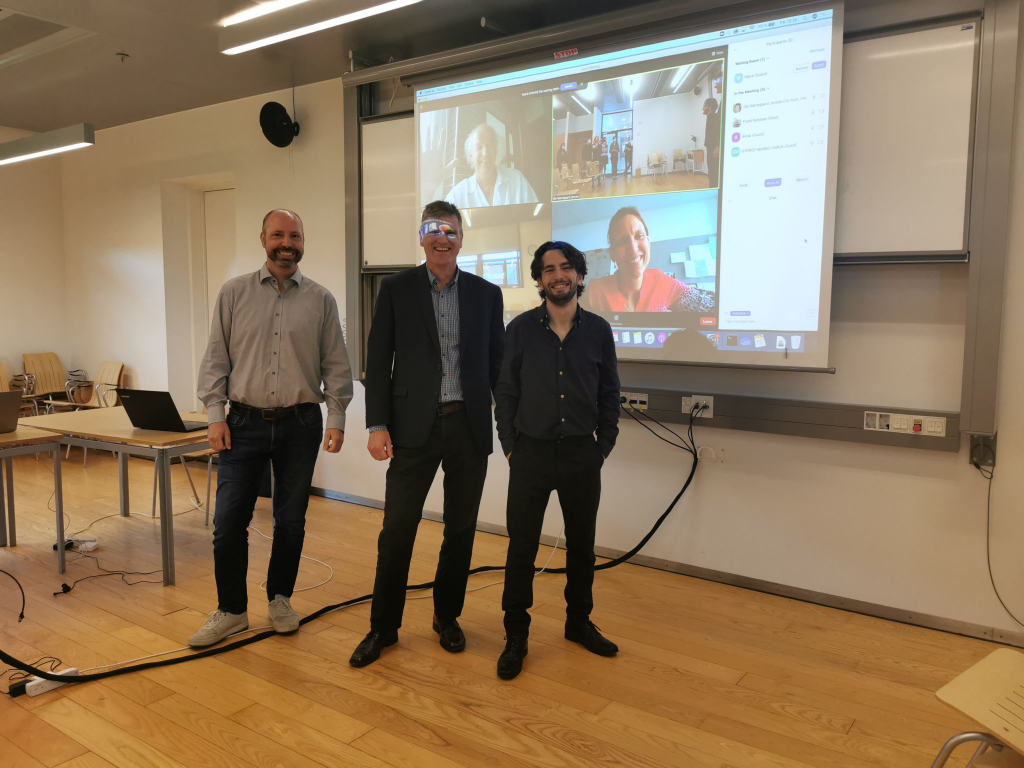
The article can be found at: https://pubs.acs.org/doi/10.1021/acs.analchem.0c04474.
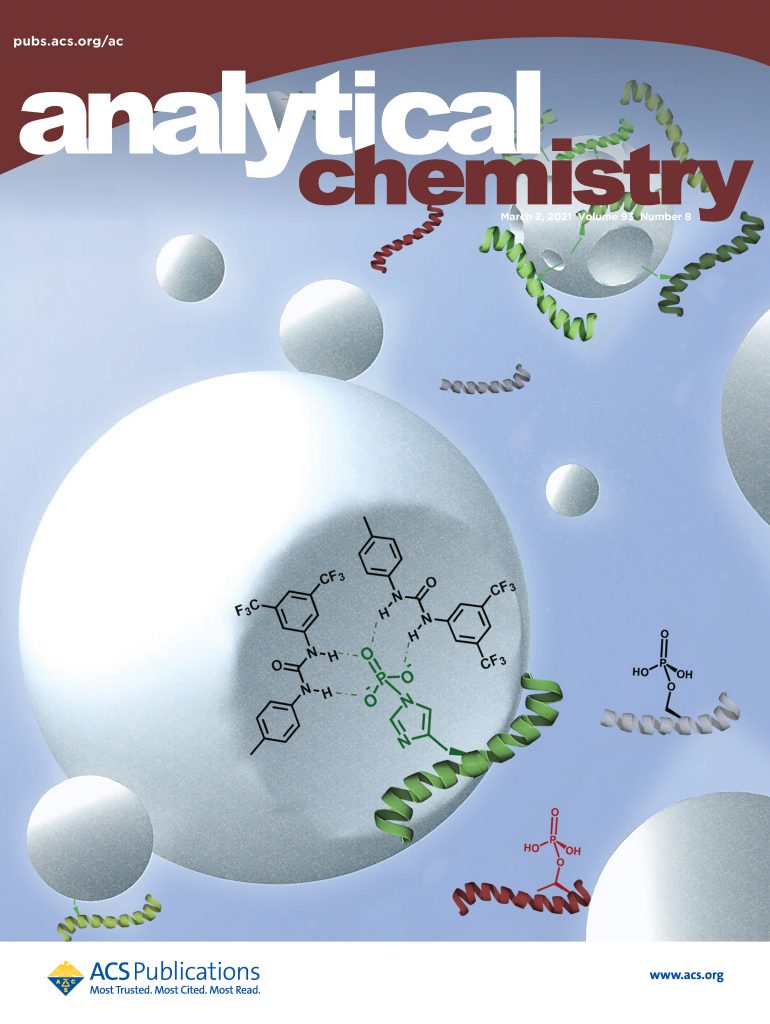

Cancer diagnostic research conducted at Malmö University has been featured in two highly regarded scientific periodicals.
Both the Journal of the American Chemical Society, and Chemical Science published the work of PhD student Anil Incel whose research has helped the advancement of diagnostic tools which could pave the way for personalised cancer healthcare.
Our receptors can enrich a specific blood-based biomarker with very high selectivity, thereby producing clean samples that are easy to analyse.
Anil Incel
Incel is part of BioCapture, a European training network which has the aim of developing the next generation of tools for cancer research and diagnostics. The journals featured part of his research about the design of artificial chemical receptors and an understanding of how to engineer specific biomarker-capture-materials for cancer diagnostics.
“We would like to develop artificial receptors — plastic antibodies — using imprinting approaches to overcome the lack of adequate diagnostic tools for cancer research.
“Our approaches are based on plastic particles with specific cavities to capture targets of interest. We believe that these receptors can be translated into robust, rapid, low-cost and easy-to-use tests or sensors with a potential impact on clinical applications to detect cancer earlier and to save more lives,” says Incel.
Around 40 per cent of the population are diagnosed with some form of cancer, and only half of them survive. A key part of tackling the disease is early diagnosis, says Incel, who is based at the Malmö University’s Biofilms Research Center for Biointerfaces.
“In general, it is not easy to detect cancer; the tools are expensive, the methods are time-consuming, they can be imprecise, and they can be painful — such as a biopsy.
“Currently, researchers focus on so called biomarkers that are used as telltale signs of the body’s status, including disease states. However, tracking these is exceptionally difficult. The workhorses used today for tracking are antibodies —biological receptors — but these are not always available, they are also expensive and difficult to handle,” he adds.
Incel has been researching diagnosing chronic lymphocytic leukaemia.
“One of the inevitable things about cancer is that it is very personal, there could be many people who have any type of cancer but the variations in cancer formation and progression play a critical role in the cancer diagnostic. In my project, the end goal is creating sequence-specific capture materials for detecting biomarkers of chronic lymphocytic leukaemia.
“I am very excited about our progress and we are hoping to publish more findings by the end of this year. Our receptors can enrich a specific blood-based biomarker with very high selectivity, thereby producing clean samples that are easy to analyse. This is essential when the aim is to develop robust bioanalytical methods for personalised cancer management,” says Incel.
Text: Adrian Grist
https://mau.se/en/news/a-small-step-towards-personalised-cancer-healthcare
Cancer is a term used for about 200 different diseases. What they all have in common is that the cells in the body start to divide uncontrollably. In 2018 there were 18 million cancer cases around the world. In Sweden, approximately every third person will be diagnosed with a cancer disease at some point during their lifetime.
A major challenge for science is to find ways to diagnose and treat these diseases. At Malmö university a new generation of chemists, physicists and biologists work in two international networks, BioCapture and GlycoImaging. Their research focus on designing plastic antibodies, bullets. The bullets are cheap to produce and aim to detect cancer cells at an early stage.
The two projects are coordinated by Börje Sellergren and Anette Gjörloff Wingren, who train and tutor 19 PhD students. This exhibition highlights the interdisciplinary work of the PhD’s and their importance for the cancer research.
Anil Incel was awarded a price as one of the three best scientific oral presentation during Graduate Student Symposium on Molecular Imprinting , BAM, Berlin, Germany (28th-30th of August, 2019).
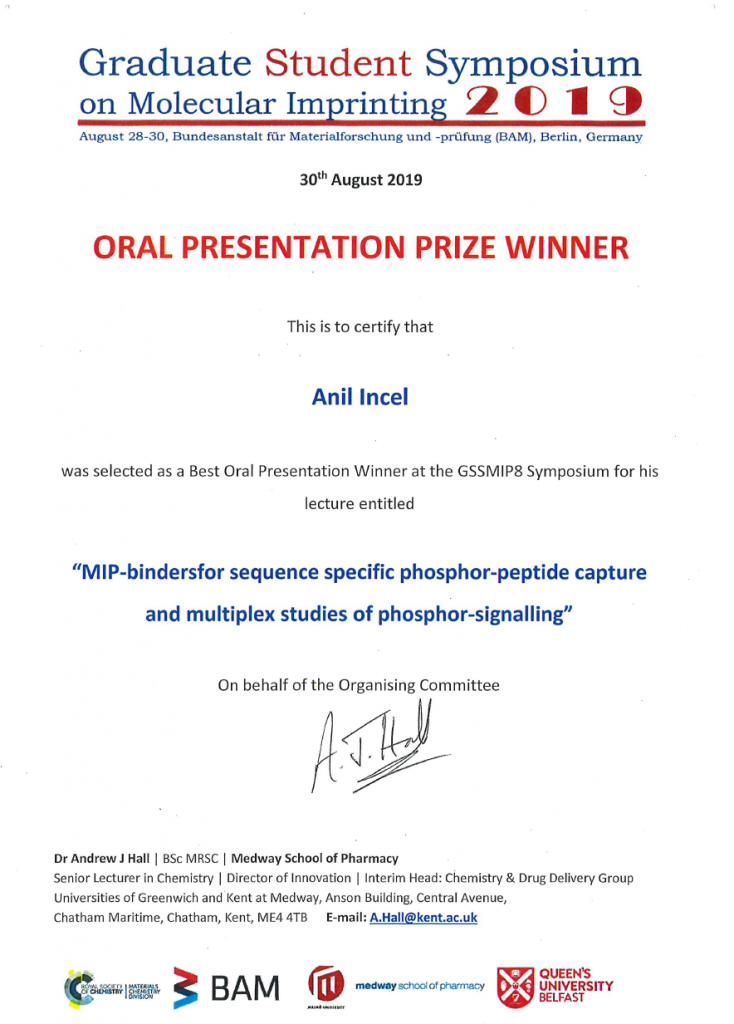
Ignacio Arribas Diez was awarded a prize as one of the four best scientific posters during the FEBS summer school in Advanced Proteomics in Brixen, Italy (28th July – 3rd August 2019).
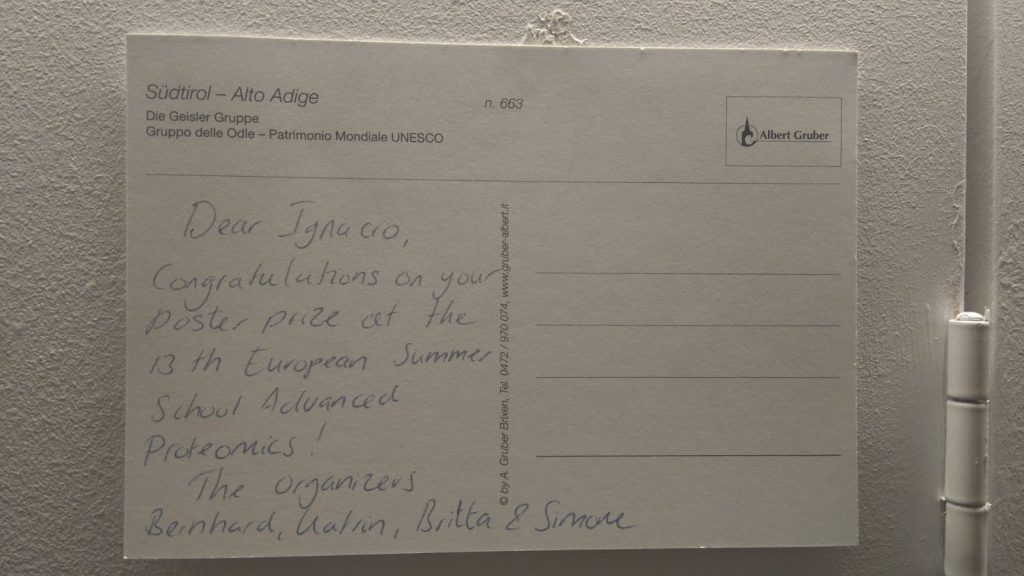
From early afternoon to midnight every year in June, over 70 scientific institutions across Berlin and Potsdam open their doors and give an insight into their work, conduct exciting experiments and present cutting-edge research with around 28,000 visitors a year. This annual event is an opportunity to share and demonstrate, to people of all age groups, the pioneering research being carried out at BAM. This year’s event again featured research developed within the EU ITN projects “BioCapture” and “GlycoImaging”.
As ESRs, this outreach event helped build on scientific communication and linguistic skills to an audience of varying ages, creeds and backgrounds. A particularly fulfilling part of the event was enthusing the younger audience by showcasing various experiments which received a lot of positive feedback. The importance of analytical chemistry and its presence in everyday life was a key take-home message to all those who attended. The importance of rapid, cheap and easy detection of cancer biomarkers at early stages, as done so in the “BioCapture” network, was of particular interest to the public.
Utilising colour and fluorescence, young and old were easily convinced by on-site demonstrations that such methods might hold a bright future for cancer diagnostics.
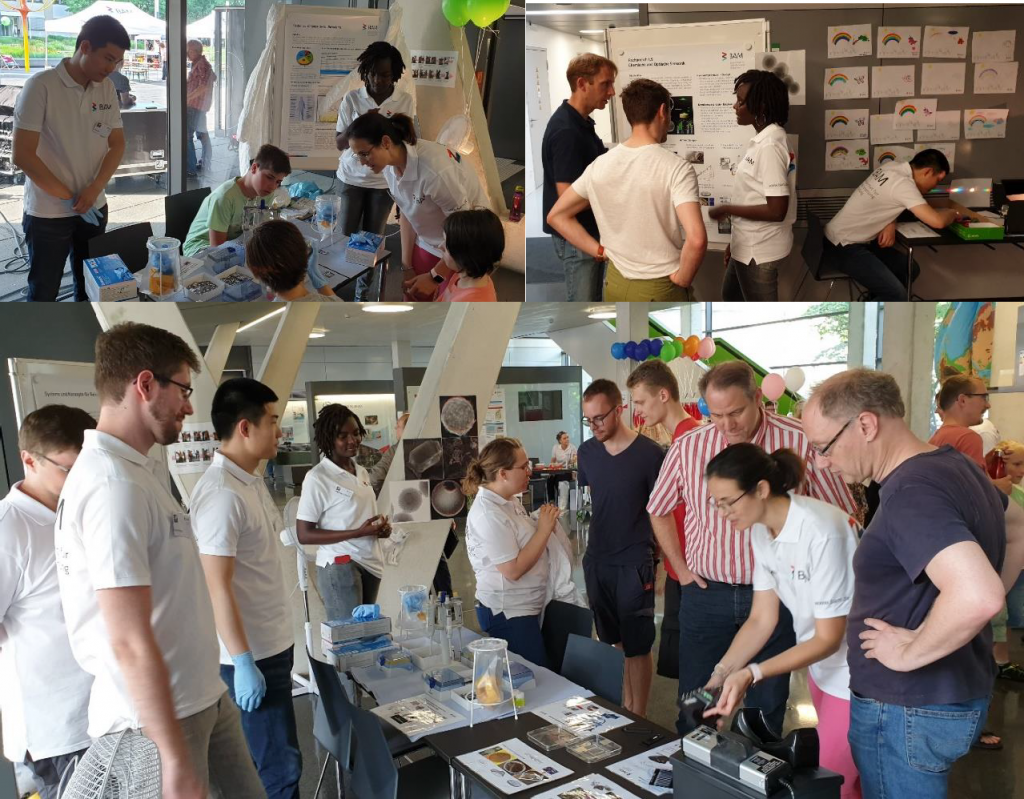
On the 7th of May 2019, BAM held an outreach program to 1st and 2nd graders from Amtsfeld-Grundschule where the ESRs from “BioCapture” were central to the running of the event. Here, the pupils saw demonstrations on lab equipment, fluorescent dyes and materials, smartphone devices, laser setups, microfluidic chips and much much more. They were also able to participate in hands-on experiments with fluorescent dyes and microfluidic paper strips, which was particularly exciting for the children. It was a pleasure to see the enthusiasm of the young audience and how interactive they were throughout the event by asking questions and volunteering in demonstrations. Nearly all reported that they learned something new or interesting at the event and thoroughly enjoyed the outing.
